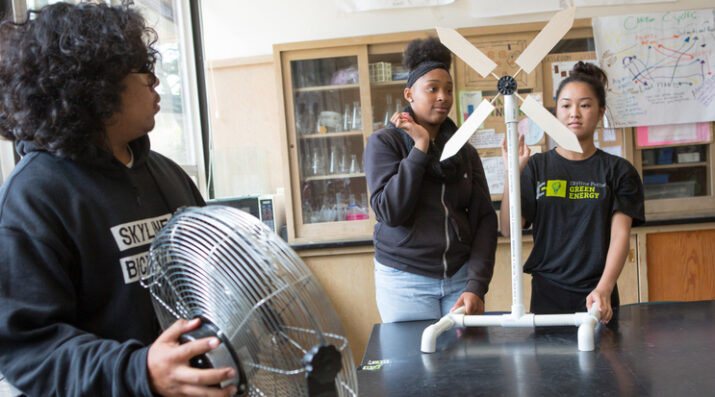Breakthrough Schools D.C. Round 3 Grantees
16 schools reimagining for more personalized and deeper learning ...

Educators are rethinking the purposes, forms, and nature of assessment. Beyond testing mastery of traditional content knowledge—an essential task, but not nearly sufficient—educators are designing assessment for learning as an integral part of the learning process.
Locations:
Baltimore County, MD
Fairfax County, VA
Palm Beach County, FL
Kane, Cook, and DuPage counties, IL
Virginia Beach, VA
Settings: Urban, Suburban
School Types: District
Targeted Grades: K-12
Number of Participating Students: More than 1,000
Number of Participating Teachers: More than 200
Curriculum Areas: Intra- and/or Interpersonal Skills and Dispositions
The Large Countywide and Suburban District Consortium
Baltimore County Public Schools (MD)
Fairfax County Public Schools (VA)
The School District of Palm Beach County (FL)
School District U-46 (IL)
Virginia Beach City Public Schools (VA)
EducationCounsel
Learn more about the districts in this District Profiles presentation.
Measuring What Matters: Performance Assessment Collaborative (PAC) is a joint effort to use performance-based assessments (PBAs) to help build high-quality systems of assessment. These systems will support the shifts in teaching and learning needed to raise achievement and close gaps while enhancing federal and state policy. PAC has 3 strands:
The PAC project team participates in three peer-to-peer learning communities, each of which will help deepen and broaden the impact of the grant on multiple systems. First, the five districts provide a large number of schools, educators, and students who can help test and refine the models. Second, the team will also learn from other ALP grantees that may approach the work from usefully different perspectives than the team’s large school district perspective. Third, the team will share what it learns with other Consortium districts to help scale successes and avoid challenges as we all advance toward high-quality systems of assessment aligned to the Consortium’s “Measuring What Matters” assessment system design principles.
Photo courtesy of Allison Shelley/The Verbatim Agency for American Education: Images of Teachers and Students in Action, CC-BY-NC 4.0